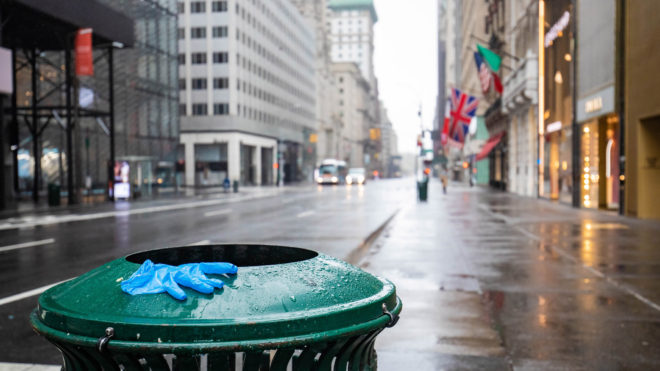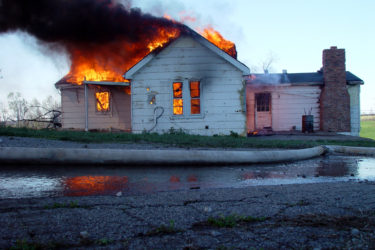Bill Catlette • 7/12/20 • Memphis
“We were ordinary people living ordinary lives” (Bee Gees, 1989),and along comes the Rona.
No one knows with any certainty what the post-COVID workspace will be like, or for that matter, if there will even BE such a thing as “post-COVID”. Indeed, as some have suggested, it’s not about how we go back, but how work will be done going forward. We do know that as we adapt, and hopefully get on the back side of this, a lot will change in the American workspace. As that process unfolds we can be guided by Winston Churchill’s statement about his efforts to help create the UN after World War 2. “Never waste a good crisis.” Indeed, our crisis is here and our learning has already begun. Let’s see if we can further it by focusing on some key take-aways.
Where We Do Our Work
For clarification, we use the term, “workspace” because for so many of us, there is no one workplace any more. Our work gets done wherever we happen to be. And, it seems reasonable to expect that all of the WFH toothpaste is NOT going back in the tube. Many workers and their bosses are okay with that, or at least they think so now. Some minds may change when they discover that it’s not all sailing with the wind at your back.
Instances of pets and kids straying uninvited into Zoom meetings that are cute now may not always be taken that way. One can almost picture the policy police wagging fingers and stepping in with WFH appearance standards and policies. (We’ll reimburse up to $500 for soundproof crates for children or small animals. And please do something about those messy bookshelves in your background.)
In all seriousness, companies should be extremely judicious about rushing to adopt broad-scope policies of any sort for a far less homogenous workspace. In a similar vein, leaders must quickly adapt to getting the wash out with a little (make that a lot) less control. If we weren’t earning our money before, we’re about to. Speaking of money, if and when the Starbucks free conference room, ‘er café stores re-open, I’m willing to bet that barista tip income soars.
As for the locational breakout of workspace next, our guess is that we’re evolving to having a regular Work From Office (WFO) component, a WFH (actually a Work From Elsewhere) component, and a hybrid variation that does some of both. A 40-30-30 split within a couple years seems reasonable. Think tele-health, which also isn’t going away, and that’s a good thing, too.
Injury & Insecurity
We’re sporting some new lasting scars, notably around workplace safety and income security. Notice what happened, for example, when President Trump ordered meat-processing plants to stay open during the crisis, despite thousands of plant employees going down with the virus. Management got the message, but production workers basically replied with raised middle fingers until they felt that adequate safety measures had been taken.
School teachers and associated professionals are beginning to do the same, as pressure is exerted to hastily reopen schools. They aren’t alone. Rather, they are simply at the next point of the spear. Plenty of others, including office workers, healthcare professionals, and executives, who, for the foreseeable future don’t want to work without proper PPE, share an elevator, or sit side by side in an office or call center have quietly (for now) lined up behind them.
Commingled with this group are the million or so Americans who heretofore traveled regularly for a living, and for whom being jammed cheek by jowl onto an aircraft with 199 others is now a non-starter. Count me among them. The airline professionals and planes I’ve trusted for forty years are fine. It’s the other 199 folks and the 6 centimeters (not feet) of separation I worry about.
Our advice to managements is that they pay particular attention to workers’ safety (including psychological) needs and concerns, then take strident preemptive measures to erect a zone of safety around their staff (the whole person) with the objective of returning employees to their families at day’s end in at least as good a condition as they arrived. Don’t scrimp. Don’t delay. In case you were wondering, yes, productivity and employer reputation are at stake here, too.
Next Normal
As with healthcare in the 1960’s, childcare will likely become the next large social services monkey that climbs onto the back of American business. As the reliability of our school systems as not just a means of education, but also America’s daytime babysitter/lunch counter comes into question, workforce reliability becomes an issue, a big issue. Indeed, a recent Washington Post article noted that, thus far, 13% of working parents surveyed have had to quit their job or significantly reduce hours in order to care for children who, due to school closures are now at home 24×7. On average, this has resulted in the loss of a day’s pay each week to workers, and several times that in work scheduling inefficiencies for businesses.
Managing
Clearly, the art and practice of management are changing. As sure as running a call center 10 years ago was at least marginally different from being a 19th century plantation boss, the realities of the workspace of 2020 require different norms, considerations, and most importantly, different leadership, real leadership.
Clearly the biggest elephant in the room thru the COVID period, leadership is a bifurcated story. In the public sector at state and federal levels, aside from congress readily agreeing early on to throw a gob of money at the situation, the performance has been mostly awful throughout the pandemic. We’ve seen no clear and consistently presented, or executed strategy, and few good examples, but with untruths aplenty, and next to nothing to ensure that our national head and ass were wired together in the face of a gathering viral storm. When you have people not believing in a common purpose/strategy like we have today in the US, you get the results we are getting.
By contrast, private industry has largely performed much better. Witness the National Basketball Association (NBA), a smallish employer with a huge footprint and a bright spotlight on it. On the evening of March 11, 2020, amidst an active schedule of games, NBA commissioner Adam Silver, having already sought the counsel of epidemiologists, public health experts, player reps and team owners, whistled NBA play to a hard stop upon learning that one of their players had tested positive for COVID. In breaking the glass and pulling the alarm lever, Silver’s announcement, within an hour became a clarion call as Americans coast-to-coast realized instantly that this was a much bigger deal than we had been led to believe. The dominoes immediately started falling, as other sports, businesses, schools and institutions followed suit, as much of America came to a screeching halt.
A lawyer by training, It quickly became clear that Silver is something of a stakeholder capitalist when it comes to running a business. His primary interest was the players, their families, and fans. He realizes that, at the end of the day, they ARE the business. Owner interests are of vital importance, but they are inextricably linked to, and a subset of the others.
Four months later, as the league attempts to tip off the remainder of their season from what he calls an in-residence “campus” at Disney-Orlando (minus in-arena fans), Silver is generally credited with being as thoughtful and trustworthy in restarting the action as he was courageous in stopping it. That trust was well-evidenced by the league’s winningest and most enduring head coach, Gregg Popovich (Spurs) in a recent interview with Maureen Dowd of the NY Times: “Ah, the Covid… I’m just counting on Adam to make sure we’re all safe.” Any NBA ref, player, or anyone else who has observed coach Pop, as he is known, for any length of time knows that if he was at all dubious about the path forward, he would have been extremely clear, forthcoming, and perhaps a little excited about it. Will it work? Who knows, but Adam Silver gets a ton of credit in my book. Fans or not, we all owe him for blowing the whistle.
Spirit Of The Hive
Going forward, as leaders, we should remember that leadership in normal times is about the team, the mission, and the good example of those they are asked to follow. In times of maximum stress like we find ourselves in now, people are hyper-attuned to these same things, especially the good example part… People follow people.
Our role is to make sure that the team is well-equipped, with the training, tools, trust, processes, information and support necessary to succeed. Our people don’t need or want sunshine blown up their skirts. Just tell them where the bus is going, why, and what you hope/expect from them.
Rather than being treated as an asset that happens to be human, our teammates will continue to reserve their best effort for those who treat them like a respected partner by listening (really listening) to them, regardless of distance, by sharing plans, telling them the truth, and by showing up (literally!) when they’re having a tough time. Good leaders know how to be a human and get stuff done without playing the boss card. That’s one thing that’s not about to change any time soon.
Stay inquisitive, stay safe. Please wear your mask.
book richard or bill to speak for your meeting


